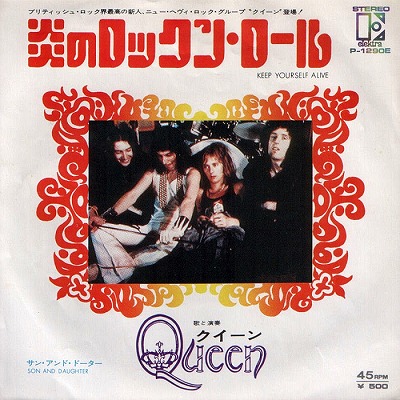 |
 |
| When I was reading a newspaper a few days ago, I read the article about a flyer of Pizza Hut written in English. |
|
| 数日前、新聞を読んでいた時、私は英語で書かれたピザハットのチラシについての記事を読みました。 | |
チラシ handbill flier(米) leaflet |
|
| "Don't you hungry? At that time, Pizza Hut !" | |
| 「お腹すいていませんか? そんな時はピザハット!」 | |
 |
|
| A man gave an opinion about it to Pizza Hut Company on line. |
|
| ある男性がインターネットで、ピザハットの会社に対して、その件について意見を言いました。 | |
| He said, “Hungry is adjective……Are you OK?… Pizza Hut ? You will be angry from head office in America.” |
|
| 彼は言いました、「Hungryは形容詞だぞ……大丈夫か、ピザハット? アメリカの本社から怒られるぞ」 |
|
| He pointed out that if you use hungry (adjective), you have to write “Aren’t you hungry ?” |
|
| 彼はもしhungry(形容詞)を使うのなら、 ”Aren’t you hungry ?”と書かなければならないと指摘したのです。 |
|
| Also the other man pointed out that “At that time,Pizza Hut!” doesn’t have subject and verb and there isn't one letter space after comma.” |
|
| それに別の人は” At that time,Pizza Hut !”という文章には、 主語も動詞もなく、カンマの後に1文字開けてないとも指摘しました。 |
|
| We have a question why no one knows elementary English in the company. |
|
| なぜその会社(ピザハット)には初歩的な英語のわかる人が いないのだろうかという疑問がわきますよね。 |
|
| no one 〜(動詞)誰も〜ない |
|
| Actually, those sentences were written from Google Translator. | |
| 実はそれらの文章はグーグル翻訳を使っていたのでした。 | |
| I tried if it is true by myself. | |
| 私はそれが本当かどうか、自分自身で試してみました。 | |
| It was true. | |
| それは本当でした。 | |
| So, I tried to do the opposite of the sentence. | |
| それで、私はその文章の反対を試してみました。 | |
| Google translated 「Onaka suite imasuka?」 into “Are you hungry?” | |
| グーグル翻訳は「お腹空いていますか?」を ”Are you hungry?” と翻訳しました。 | |
| This is a good translation, no problem. | |
| この翻訳はいい翻訳で、問題ありません。 | |
| Then, why do Google Translator makes a mistake? |
|
| では、なぜグーグル翻訳は間違えるのでしょうか? | |
| Negative words of Japanese are different from English. | |
| 日本語の否定語は、英語とは違います。 | |
| It must be very difficult for automatic translate machine to do. | |
| 自動翻訳機にとっては,その翻訳はとても難しいに違いないのです。 | |
| He is confused, isn’t he? | |
| 彼の頭は混乱しているんですよね。 | |
| By the way, do you know what “Keep yourself alive” is translated by Google translation |
|
| ところで、「生き残れ」はグーグル翻訳で何と翻訳されるのか、知っていますか? | |
| He does “Honoo no rockn roll“ in Japanese. | |
| 彼は日本語で「炎のロックンロール」と翻訳します。 | |
| This is a Japanese title of “Keep yourself alive” by Queen, British rockband. | |
| これはイギリスのロックバンドのクイーンの“Keep yourself alive”の邦題です。 |
|
 |
 |
| What a funny translator he is ! | |
| 何て彼は面白い翻訳機なんでしょう! | |
| He sometimes translates maniacally. | |
| 彼は時々、マニアックに翻訳するのです。 | |
maniacally (マナイアカリィ) マニアックに |
|
| Google Translator makes me laugh. | |
| グーグル翻訳は私を笑わせてくれます。 |
|
| By the way, Excite Translator translates "Onaka suite imasenka?"
into "Aren't you hungry?" |
|
| ちなみにエキサイト翻訳はさっきの「お腹すいていませんか?」を "Aren’t you hungry?" と翻訳しています。 | |
| Google lost Excite. | |
| グーグルはエキサイトに負けました。 | |
 |
|
| 2016年5月12日(木) | トップページへ戻る |
| ●Here are our teacher's one point lesson today. | |
| 私たちの先生の今日のワンポイントレッスンです。 | |
| I asked him, "I've heard that Smith is the most many family name in America. Is it true?" | |
| 私は先生に訊きました「アメリカで一番多い苗字はスミスだと聞いたことがありますが、それは本当ですか?」 | |
| He answered me, "That's right. Smith means craftman in old English. | |
| 先生は答えました、「その通りです。スミスは古い英語で職人という意味です。 | |
| Most craftman's name has smith in the old days. | |
| 昔はほとんどの職人の名前には、スミスがついていたんです。 | |
| For example, blacksmith, glasssmith, leathersmith, goldsmith, whitesmith, and so on. | |
| 例えば、鉄の鍛冶屋、ガラス職人、皮職人、金細工師、ブリキ職人などです。 | |
 |
|
| That's why, there are lots of Smith in the states." | |
| だから、アメリカにはたくさんのスミスさんがいるんですよ。」 | |
| Oh, I see. The history of the name is interesting, isn't it ? | |
| ああ、そうなんですね。 名前の歴史は面白いですね。 | |